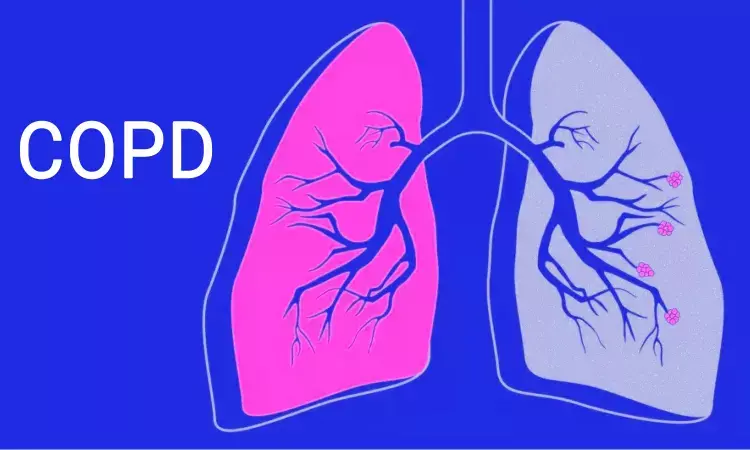- Home
- Medical news & Guidelines
- Anesthesiology
- Cardiology and CTVS
- Critical Care
- Dentistry
- Dermatology
- Diabetes and Endocrinology
- ENT
- Gastroenterology
- Medicine
- Nephrology
- Neurology
- Obstretics-Gynaecology
- Oncology
- Ophthalmology
- Orthopaedics
- Pediatrics-Neonatology
- Psychiatry
- Pulmonology
- Radiology
- Surgery
- Urology
- Laboratory Medicine
- Diet
- Nursing
- Paramedical
- Physiotherapy
- Health news
- Fact Check
- Bone Health Fact Check
- Brain Health Fact Check
- Cancer Related Fact Check
- Child Care Fact Check
- Dental and oral health fact check
- Diabetes and metabolic health fact check
- Diet and Nutrition Fact Check
- Eye and ENT Care Fact Check
- Fitness fact check
- Gut health fact check
- Heart health fact check
- Kidney health fact check
- Medical education fact check
- Men's health fact check
- Respiratory fact check
- Skin and hair care fact check
- Vaccine and Immunization fact check
- Women's health fact check
- AYUSH
- State News
- Andaman and Nicobar Islands
- Andhra Pradesh
- Arunachal Pradesh
- Assam
- Bihar
- Chandigarh
- Chattisgarh
- Dadra and Nagar Haveli
- Daman and Diu
- Delhi
- Goa
- Gujarat
- Haryana
- Himachal Pradesh
- Jammu & Kashmir
- Jharkhand
- Karnataka
- Kerala
- Ladakh
- Lakshadweep
- Madhya Pradesh
- Maharashtra
- Manipur
- Meghalaya
- Mizoram
- Nagaland
- Odisha
- Puducherry
- Punjab
- Rajasthan
- Sikkim
- Tamil Nadu
- Telangana
- Tripura
- Uttar Pradesh
- Uttrakhand
- West Bengal
- Medical Education
- Industry
Digital inhalers may detect early warning signs of COPD flare-ups: Study

Digital inhalers may help predict impending acute exacerbations of chronic obstructive pulmonary disease (COPD), according to a new study. The study is published in the May 2025 issue of Chronic Obstructive Pulmonary Diseases: Journal of the COPD Foundation, a peer-reviewed, open-access journal.
COPD is an inflammatory lung disease, comprising several conditions, including chronic bronchitis and emphysema, and can be caused by genetics and irritants like smoke or pollution. The disease affects more than 30 million Americans and is the fourth leading cause of death worldwide.
Exacerbations, or flare-ups, can cause accelerated loss of lung function, a decrease in quality of life, and reduce a person’s physical function and activity. More than 50% of people with COPD experience at least one acute COPD exacerbation within four years of an initial COPD diagnosis. Increased respiratory rates and decreased lung volumes are early signs of an exacerbation.
This new study examines how digital inhalers using remote monitoring data can help predict and identify early or impending COPD exacerbations. The digital inhaler used in this study measured peak inspiratory flow, inhalation volume, inhalation duration, time to peak inhalation, and inhaler use. The study examined whether the data collected by the digital inhaler could identify a possible early-stage exacerbation.
“While this study examined a small group of participants, the remote monitoring data showed people experienced significant decreases in the amount of air they inhaled and how long that inhalation lasted in the approximately two weeks prior to experiencing an exacerbation,” said M. Bradley Drummond, M.D., MHS, professor of medicine in the Division of Pulmonary Diseases and Critical Care Medicine at the University of North Carolina, Chapel Hill School of Medicine and lead author of the study. “As these remote monitoring technologies get more advanced, we can help both patients and health care providers identify exacerbations earlier, which allows us to provide better exacerbation management and improve health outcomes.”
Reference:
Drummond MB, Hemphill CC, Hill T, Boe A, Yu D, Ohar JA. Use of a digital inhaler to assess COPD disease variability and identify impending acute COPD exacerbations: a pilot study. Chronic Obstr Pulm Dis. 2025; 12(3): 250-259. doi: http://doi.org/10.15326/jcopdf.2024.0555
Dr Kamal Kant Kohli-MBBS, DTCD- a chest specialist with more than 30 years of practice and a flair for writing clinical articles, Dr Kamal Kant Kohli joined Medical Dialogues as a Chief Editor of Medical News. Besides writing articles, as an editor, he proofreads and verifies all the medical content published on Medical Dialogues including those coming from journals, studies,medical conferences,guidelines etc. Email: drkohli@medicaldialogues.in. Contact no. 011-43720751


